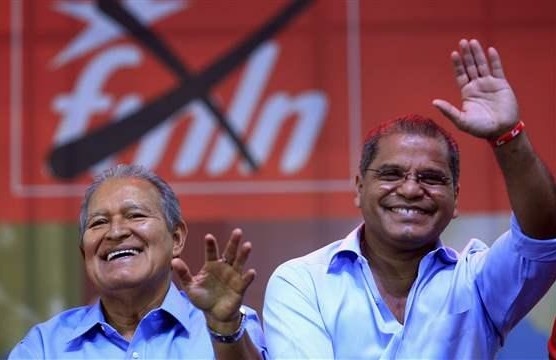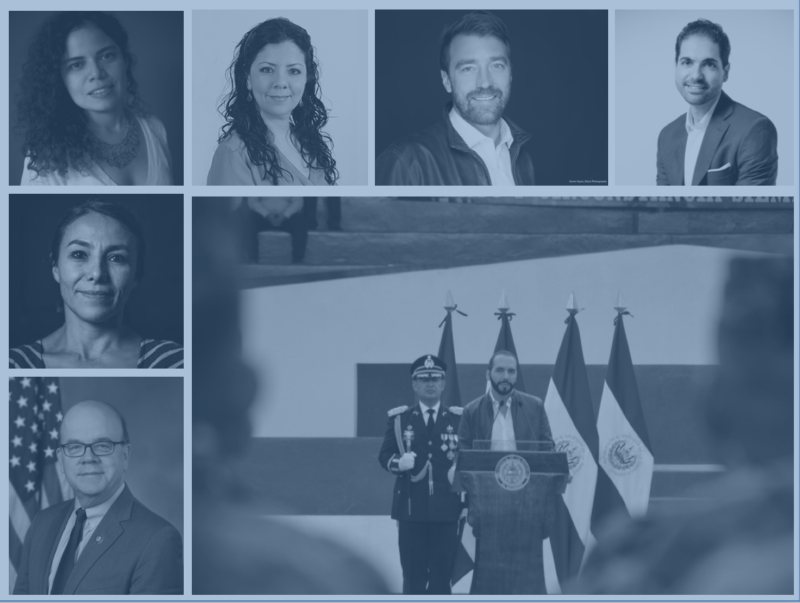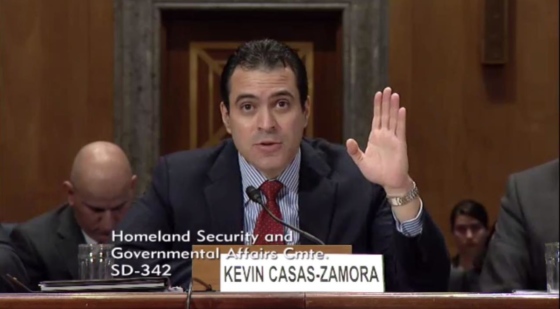
The Implications of El Salvador’s Elections
Although experts predict that the ruling FMLN party will hold on to power in El Salvador’s elections, whoever wins faces a complex set of challenges.
On March 8, 2021, the Inter-American Dialogue, in partnership with the Washington Office on Latin America (WOLA), Cristosal, and the Due Process of Law Foundation (DPLF), hosted the online event “Elections and Institutional Crisis in El Salvador”. The panel discussed the recent legislative elections in El Salvador on January 28, how democratic governance has been challenged in the country in recent years, as well as how the United States–El Salvador relationship can change given the new US administration. The event featured welcome remarks from Michael Camilleri, director of the Peter D. Bell Rule of Law Program at the Inter-American Dialogue, opening remarks from Congressman Jim McGovern, US Representative for Massachusetts’ 2nd congressional district, moderation from Adriana Beltrán, director of the Citizen Security Program at WOLA, and analysis from Leonor Arteaga, program director at DPLF, Noah Bullock, executive director of Cristosal, and Julia Gavarrete, journalist at El Faro.
Camilleri and Congressman McGovern began the conversation by contextualizing how President Nayib Bukele’s administration has represented diverging trends on the development of its democracy. On the one hand, President Bukele enjoys record-high popular support, with his New Ideas party securing a legislative majority on the January 28 elections. On the other hand, this concentration of power is concerning as Bukele’s control over the executive and legislative branches of government could extend to the judicial as well, using his legislative majority to elect and appoint an Attorney General and Supreme Court justices friendly to his administration. While the Congressman understands Bukele’s appeal to Salvadorans dissatisfied with traditional parties and their associated corruption, he remains concerned about the President's “trends towards authoritarian rule”, and assured participants that the US Congress will continue to closely monitor the events in El Salvador and evaluate if the Bukele government can remain a “reliable partner” in its commitments to uphold the rule of law and protect human rights.
The panelists further explained how changes in the US administration could impact United States-El Salvador relations. According to Bullock, President Trump’s priorities in Central America were to reduce migration through a deterrence strategy that Bukele was quick to embrace, creating a relationship where the United States would “turn a blind eye” to violations of democratic norms. In contrast, the Biden administration has emphasized that it aims to tackle migration by addressing its root causes, including corruption and poor governance. Bukele’s attempts to engage with the new administration have already gotten off to a rough start, with reports that several Biden officials refused to meet in person with him during his surprise visit to Washington D.C. Arteaga pointed out that this rejection was likely a decision on behalf of the Biden administration to avoid Bukele bolstering his image and feigning good standing with the new administration. Both Bullock and Arteaga agreed that President Bukele’s domestic popularity doesn’t guarantee positive relations with the United States.
In terms of moving forward, Arteaga outlined several actions that the United States can do to ensure that the rule of law is respected in El Salvador, including issuing public statements reiterating US commitment to anti-corruption and good governance, ensuring that all financial humanitarian assistance be accompanied by benchmarks and strong anti-corruption measures, and nominating an ambassador to El Salvador with a strong human rights record who can help facilitate diplomacy. Both Bullock and Gavarrete agreed that respecting rule of law and respecting Bukele’s popular support is not mutually exclusive, and that the US can and should engage in a dialogue with the government to make clear that his popular support should be used to advance rule of law and improve people’s lives in general. The United States’ role can be to use its influence to channel Bukele’s popularity for the greater good.
Panelists also explained efforts to fight corruption in El Salvador and why members of the press and civil society are concerned that Bukele’s government is fostering an already-existing culture of impunity in the country. Gavarrete expressed her concerns that it’s very difficult to monitor public administration spending and that the government is not transparent in disclosing its policies. She cited two recent examples that highlight a lack of accountability for public officials: (1) an incident involving three security officers that attacked militants from the FMLN, which Bukele politicized by accusing the FMLN of attacking themselves; (2) an incident involving two female politicians, also from the FMLN, who were harassed by a government official. Bullock further explained how Bukele has channeled a popular policy – anti-corruption – and politicized it, arguing that his political opponents are routinely corrupt, while also refusing to look into corruption allegations within his own government. Highlighting how entrenched corruption can be within the government, Bullock argued that an international commission is necessary, as other traditional methods of bilateral assistance and previous experience in the region show that the justice sector is unable to reform themselves on their own. When asked by Beltrán about his opinion on whether or not the new legislative initiative to strengthen the anti-corruption body CICIES has a good chance of passing in the New Ideas-majority legislature, Bullock was optimistic, arguing that Bukele won the election with a mandate to combat and eliminate corruption, and that he should follow this popular demand and support efforts to strengthen his own anti-corruption commission.
The panel concluded with questions from the audience regarding the feminist movement in El Salvador, IMF loans, and the military’s relationship with Bukele. Overall, the panelists outlined the various institutional challenges that El Salvador is currently facing while also providing some insight on how a new US administration, as well as an invigorated civil society sector in El Salvador, can help defend and strengthen its democracy.
Although experts predict that the ruling FMLN party will hold on to power in El Salvador’s elections, whoever wins faces a complex set of challenges.
CONGRESSIONAL TESTIMONY AS SUBMITTED FOR RECORD AND DELIVERED BEFORE A FULL COMMITTEE HEARING OF THE US SENATE COMMITTEE ON HOMELAND SECURITY AND GOVERNMENT AFFAIRS. Over the past five years, slightly over 100,000 unaccompanied migrant children from Guatemala, Honduras and El Salvador have been apprehended at the US southern border. They are but…
During the last decade, there has been significant improvement in Salvadorans education, in an international context which reaffirms the importance of education as key strategy for the progress of nations. The Educational Reform, promoted since the 90s, has obtained initial achievements in expanding the access of education, improving quality of…
 Main Photo: PresidenciaSV / Wikipedia / CC BY-SA 4.0
Main Photo: PresidenciaSV / Wikipedia / CC BY-SA 4.0
 Video
Video